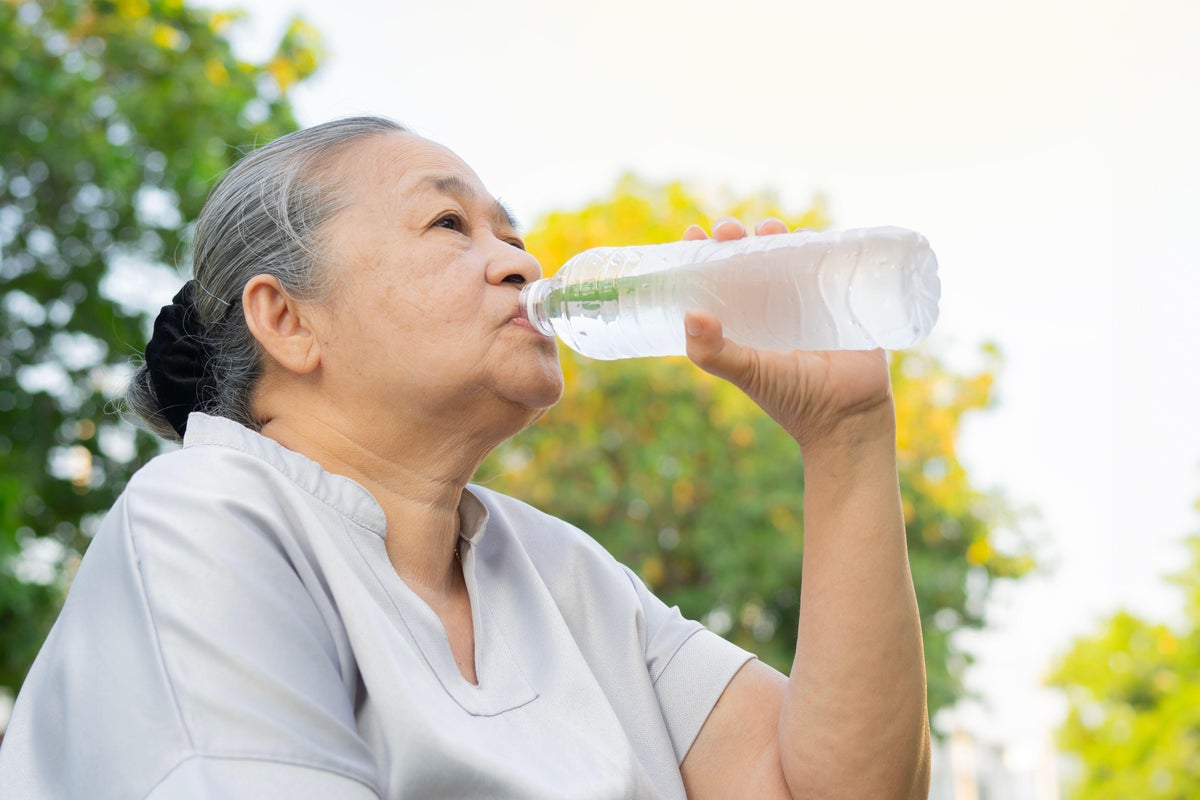
You’re probably not drinking enough water. This is what you can do about it
Hydration is a very important, but often overlooked, part of your health.
Water is essential for our bodies to function properly and the impact of not drinking enough water extends beyond mere thirst.
Many of us unknowingly fall short of our daily hydration needs.
What’s more, the impact of not drinking enough water affects everything from digestion to skin health, energy levels, and even cognitive function.
Here are five critical ways inadequate hydration can harm your health, highlighting why staying properly hydrated should be a key focus for both your physical health and overall wellbeing.
1. Dry skin
Insufficient hydration can lead to dry skin.
“With a lower water intake, our skin can become dehydrated, making us susceptible to dry, itchy, and cracked skin,” explains Dr Kim Goldin, senior GP and health assessment doctor at Nuffield Health. “This, in turn, can exacerbate an underlying skin condition such as dermatitis or eczema or make us prone to a skin infection.”
2. Gut issues
Failing to provide your body with enough water can undermine gut health.
“Our gut health can be impacted by low hydration levels as the water content in our intestines decreases,” says Goldin. “This can result in our bowel movements slowing down and lead to stools becoming hard and dry, potentially causing constipation.”
3. Circulation problems
Dizziness could also be a sign of dehydration.
“Low hydration levels can cause issues with our circulatory system, as there is less blood travelling around the body,” highlights Goldin. “This can result in symptoms such as low blood pressure, light-headedness, and dizziness.
“In more severe cases of dehydration, our blood can thicken, increasing the risk of blood clots and heart attacks.”
4. Impairs cognitive functioning
“As our brain requires good levels of water to function, our cognitive function can be impacted by low hydration levels,” says Goldin. “This can lead to poor concentration, mood changes (low mood, irritability), a lowered attention span, and short-term memory issues.”
5. Urinary issues
Dehydration is a common cause of urinary tract infections and kidney stones.
“When fluid intake is low, urine becomes more concentrated, increasing the risk of infection,” explains Goldin. “Regarding kidney stones, there is a direct link between dehydration and the formation of stones in the kidneys.”
Here are some helpful tips to improve your hydration…
Drink throughout the day
“Even though we are told to drink six to eight glasses of water per day to stay well-hydrated, it is more practical to drink frequently throughout the day,” advises Goldin. “Setting reminders can help reach this goal.”
Add fruit

“Make drinking water more enjoyable by adding a slice of lemon, cucumber, or even fruits such as berries,” suggests Goldin.
Minimise caffeine and alcohol consumption
“Both caffeine and alcohol act as diuretics and increase water loss from the body – as well as moderating our daily caffeine intake and minimising alcohol consumption, we need to increase our water consumption e.g. having a glass of water with every caffeinated drink,” recommends Goldin.
Consume foods rich in water content
“Eat foods with high water content, such as watermelon, berries, and cucumbers,” advises Goldin.
Drink extra water when sick
“It is important to increase water intake when feeling unwell, especially if experiencing symptoms such as fever or diarrhoea,” says Goldin.










